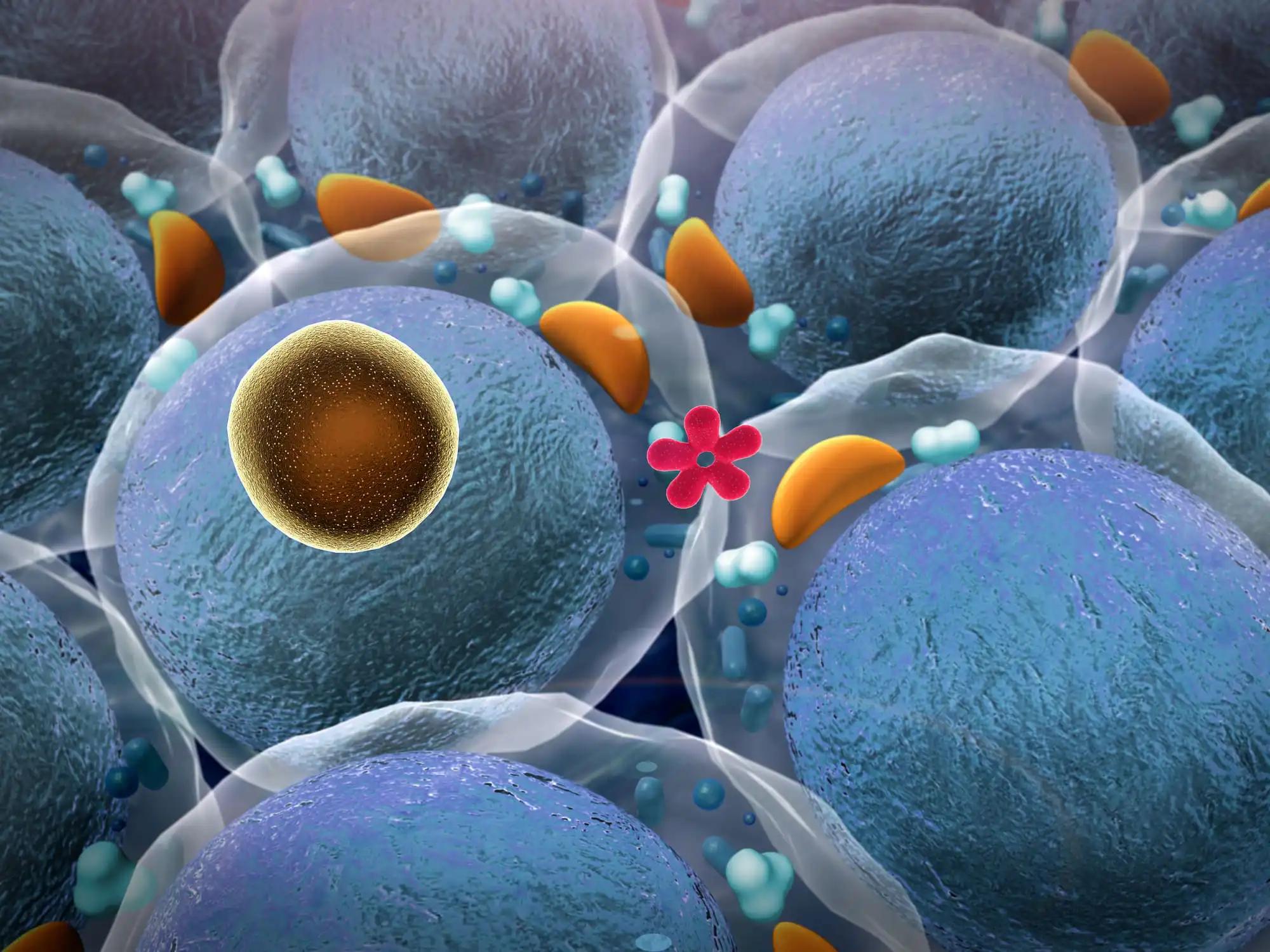KEY TAKEAWAYS
- The study aimed to determine the effects of TGF-β on the TME and to assess the efficacy of anti-PD-1 immunotherapy in treating EGFR-mutated pts with NSCLC.
- Researchers made it evident that blocking of TGF-β enhanced anti-PD-1 efficacy in EGFR-mutated NSCLC.
EGFR mutation-carrying patients (pts) with non-small cell lung cancer (NSCLC) exhibit a detrimental response to immune checkpoint inhibitor (ICI) monotherapy, with a usually immunosuppressed tumor microenvironment (TME).
TGF-β plays an important role in immunosuppression; however, the impacts of TGF-β on the TME and the efficacy of anti-PD-1 immunotherapy against EGFR-mutated tumors remained unclear.
Huayan Huang and the team aimed to investigate the effects of TGF-β on the TME and to assess the efficacy of anti-PD-1 immunotherapy in treating EGFR-mutated NSCLC.
Researchers conducted in vitro studies employing the TCGA database, clinical specimens, and self-constructed SJT1601 cell lines with EGFR mutations. They utilized C57BL/6N and humanized M-NSG subjects bearing EGFR-mutated NSCLC to investigate the impacts of TGF-β on the TME and the combined efficacy of TGF-β blockade + anti-PD-1 therapy.
Flow cytometry was utilized for continuous monitoring of immune cell alterations. Clinical samples affirmed the correlation between TGF-β and immunotherapy outcomes of EGFR-mutated NSCLC.
They noticed that TGF-β was upregulated in EGFR-mutated NSCLC by EGFR activation and subsequent ERK1/2-p90RSK phosphorylation. TGF-β directly inhibited CD8+ T cell infiltration, proliferation, and cytotoxicity both in vitro and in vivo, but blocking TGF-β did not suppress the growth of EGFR-mutated tumors in vivo.
Anti-TGF-β antibody combined with anti-PD-1 antibody significantly inhibited the proliferation of recombinant EGFR-mutated tumors in C57BL/6N, which was superior to their monotherapy. Mechanistically, the combination of anti-TGF-β + anti-PD-1 antibodies significantly increased the infiltration of CD8+ T cells and enhanced the anti-tumor function of CD8+ T cells.
Moreover, the expression of TGF-β1 in EGFR-TKI-resistant cell lines was significantly enhanced relative to parental cell lines. The combination of anti-TGF-β + nivolumab significantly inhibited the proliferation of EGFR-TKI-resistant tumors in humanized M-NSG subjects and prolonged their survival.
The study concluded that TGF-β expression is upregulated in pts with EGFR-mutated NSCLC through the EGFR-ERK1/2-p90RSK signaling pathway. High TGF-β expression inhibited the CD8+ T cells infiltration and anti-tumor function, which contributied to the “cold” TME of EGFR-mutated tumors.
Blocking TGF-β can potentially reincarnate the TME, and may enhance the therapeutic efficacy of anti-PD-1 in EGFR-mutated NSCLC tumors, which will provide a potent immunotherapy technique for advanced EGFR-mutated pts with NSCLC.
The study was funded by National Natural Science Foundation of China.
Source: https://pubmed.ncbi.nlm.nih.gov/39004699/
Huang H, Zhu X, Yu Y, et al. (2024). “EGFR mutations induce the suppression of CD8+ T cell and anti-PD-1 resistance via ERK1/2-p90RSK-TGF-β axis in non-small cell lung cancer.” J Transl Med. 2024 Jul 14;22(1):653. doi: 10.1186/s12967-024-05456-5. PMID: 39004699.



